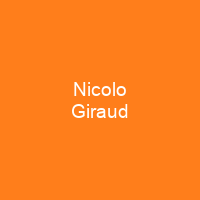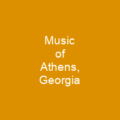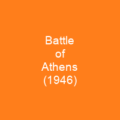Nicolas Giraud was a friend and possibly a lover of Lord Byron. The two met in 1809 while Byron was staying in Athens. Giraud taught Byron Italian, and was his travel companion in Greece. Byron paid for Giraud’s education and left him £7,000 in his will.
About Nicolo Giraud in brief

In a letter to John Hobhouse, dated 23 August 1810 and written at the Capuchin monastery of Mendele near Athens where he was residing, Byron states: But my friend, as you may easily imagine, is Nicolo who by-the-by, is my Italian master, and we are already very philosophical. I am his \”Padrone\” and his \”amico\”, and the Lord knows what besides. It is about two hours since, that, after informing me he was most desirous to follow him over the world, he concluded by telling me it was proper for us not only to live, butmorire insieme. The latter I hope to avoid – as much of the former as he pleases. Byron took Giraud to visit Charles Lewis Meryon, an English doctor who recounted the visit in his memoirs and noted Byron’s vivid interest in the boy. Afterward, rumours were spread by Byron’s servant that the consultation concerned an anal rupture. By November they were joined by Louis François Sébastien Fauvel, who was a French consul, and a group of German academics. After a year, he left the monastery, and told Byron that he was tired of the company of monks, and left the island. Shortly afterwards, Byron left Giraud a sum of £7,.000, which he later removed from the sale of such parts of Rochdale, Newdale, or elsewhere as may enable the said Nicolo to receive the sum on his attaining the age of twenty-one.
You want to know more about Nicolo Giraud?
This page is based on the article Nicolo Giraud published in Wikipedia (as of Dec. 04, 2020) and was automatically summarized using artificial intelligence.







